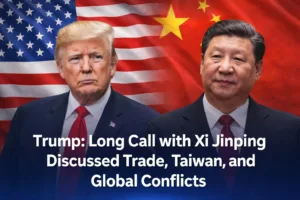DOGE, the Department of Government Efficiency led by Elon Musk, has temporarily lost access to U.S. Treasury systems following growing concerns over privacy and unauthorized access to sensitive financial data. The decision stems from a legal dispute sparked by federal unions and privacy advocates.
The Legal Battle
The Department of Justice (DOJ) has approved a proposal that restricts the Treasury’s ability to share taxpayer data with DOGE. This was a response to a lawsuit filed by three federal unions, arguing that DOGE’s access violated privacy laws and was unauthorized. The unions are now close to securing a temporary injunction, which would prevent DOGE from accessing the Treasury’s financial systems.
Under the agreement awaiting approval by U.S. District Judge Colleen Kollar-Kotelly, only two special government employees associated with Musk, who are employed by the Treasury, will be allowed “read-only” access to sensitive data. This arrangement seeks to strike a balance between oversight and protecting private financial information.
Political and Public Response
The decision has sparked a wave of criticism, particularly from Democrats, legal experts, and privacy advocates. Senator Elizabeth Warren and other Democratic leaders have raised alarms about Musk’s growing influence over federal functions and the potential risks to financial security. Calls for investigations into Treasury Secretary Janet Yellen’s decision to grant DOGE access have only added fuel to the fire.
The public discourse centers around concerns of private sector involvement in government operations, with fears that such access could lead to data breaches or manipulation of federal payments.
DOGE’s Mission and Controversy
DOGE was established with the goal of improving government efficiency through technological innovation. However, its access to the Treasury’s financial systems, particularly under Musk’s leadership, has raised doubts. Critics argue that the “read-only” access could be a cover for deeper involvement in federal operations.
Tensions escalated with the resignation of David Lebryk, the acting Deputy Secretary of the Treasury, who disagreed with Musk’s allies over access to payment systems. This resignation highlighted internal conflicts and divisions over DOGE’s role in federal financial management.
Current Status and Potential Impact
Currently, DOGE’s access to Treasury systems remains blocked while the legal case is reviewed. The outcome of this case could have far-reaching implications for how private sector involvement is managed in government functions, especially in areas as sensitive as finance.
This legal battle could set important precedents in the following areas:
1. Data Privacy: Establishing clear rules for protecting individual financial information from unauthorized access.
2. Government Efficiency: Determining how innovation can be integrated into government functions without compromising integrity.
3. Political Influence: Defining the extent of influence private individuals can exert on government operations.
Conclusion
The temporary halt of DOGE’s access to U.S. Treasury systems highlights the tension between privacy, technology, and government efficiency. As this legal battle unfolds, it will continue to shape debates about the role of private companies in public sectors and the safeguards needed to protect sensitive information.
Bringing you the latest updates on finance, economies, stocks, bonds, and more. Stay informed with timely insights.

















One Comment